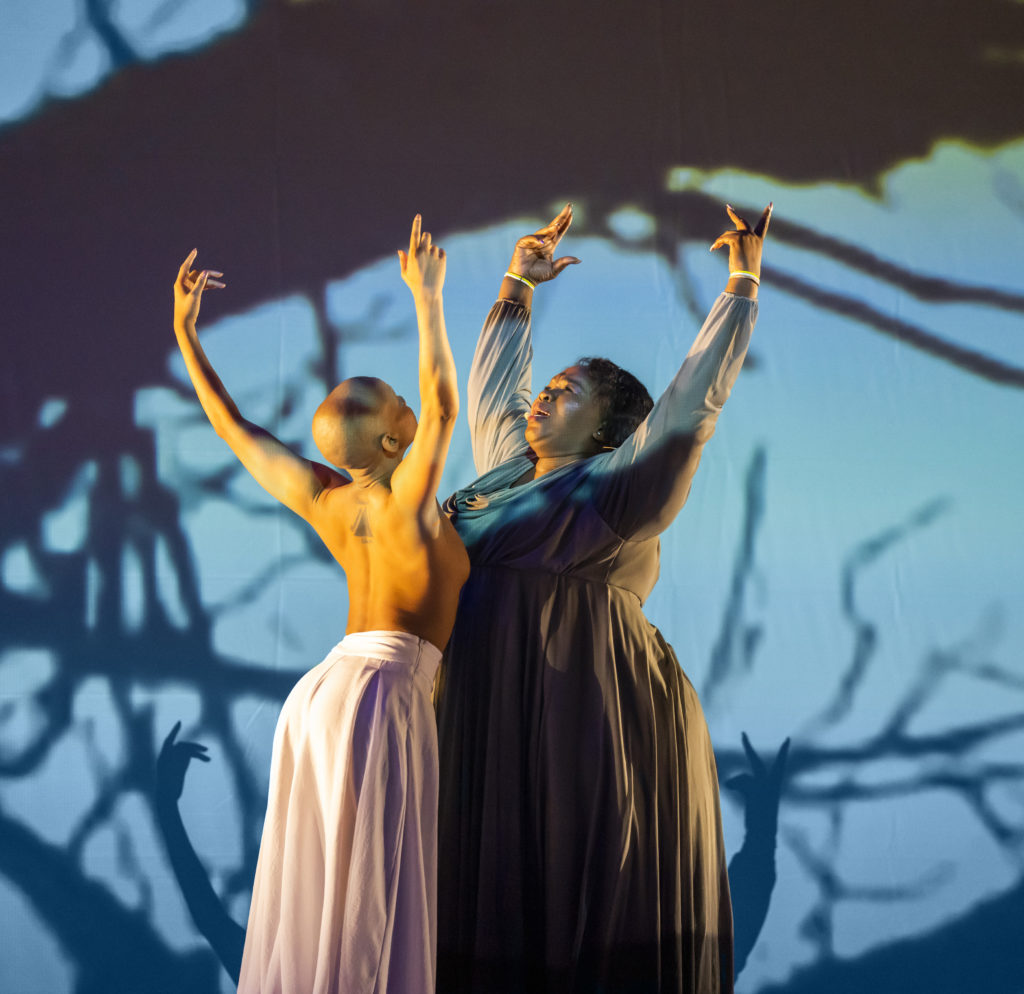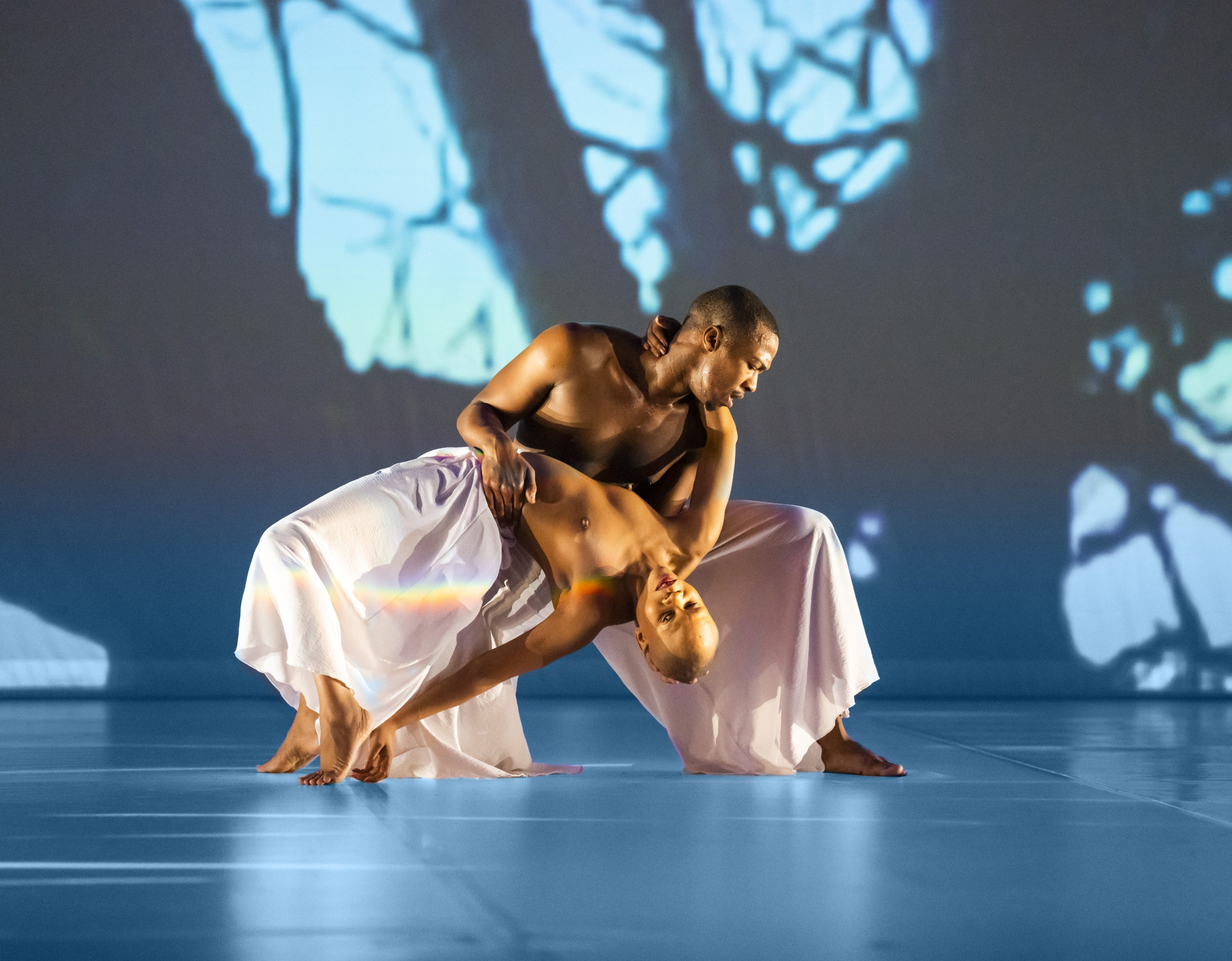Words by Paula Catalina Riofrio
The lights projected on the floor imprinted the shapes of sand caressed by the ocean. Solemnly, enters Dada Masilo as her hands morph into mokue bird wings. Her hands could cause a tornado, her hands are in search of a lost treasure inside herself, in the depths of nature. Inspired by Pina Bauch’s The Rite of Spring and guided by Stravinsky’s lush, rampant sound scores, The Sacrifice takes us in a journey that clashes the ancient and the contemporary with no regret nor regression.
Ancient tribes and cultures from all over the world find themselves attached and grateful to the sun above and the soil beneath them. The many tribes of Botswana are no exception. Masilo’s research on Tswana dance and the rituals connected with letlhafula, or the harvest ritual inform The Sacrifice. In these celebrations, all throughout the nights in April, the Tswana community celebrates the coming of spring with dance, chants and music. The dancers have their chest open and leaned forward to the ground, their feet are tapping synchronised, their hearts rumble accelerated as the music becomes the threshold for the energy to flow and materialise.
Ann Masina’s resplendent voice seems to imprint revelations in the dancer’s bodies. Leroy Mapholo, Mpho Mothaba, and Nathi Shongwe feed the vital energy of movement and feast on the buoyant and vigorous humanhood of the dancers.

Experiencing The Sacrifice makes me wonder about the place for rituals in our life. When time becomes unperceivable and space transformable, aren’t rituals the most essential course of our being? Refiloe Mogoje, one of the soloists, outburst her chants as she writes in movement expanding beyond her materiality. The dancers cut the air with fast energetic signatures while the violin goes through a different tempo, divagating, astray, collapsing the time on stage. Dualism is perceptible: dance cannot live with music, nor light without darkness, nor summer without a long cold winter, nor spring without a sacrifice.
Rites of passage, rites of atonement, rites for purifying, what makes life special? What gives life meaning? After the performance I felt something was missing in this world. The Sacrifice opened my mind to many questions regarding spirituality, time and connection. Masilo carefully crafted an outstanding approach from performative arts towards a culture that remains hidden amidst globalisation and climate crisis. This piece speaks of the eclectic encounter between the dualism of past and present. Leaving us with a fervent beat inside, calling us to gather in search for a communal and more essential practice of life.
